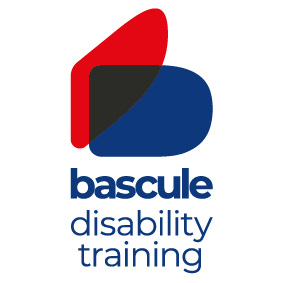A workplace revolution

Could the coronavirus improve employment opportunities for people with disabilities?
One thing we have learnt during the Covid-19 outbreak, is that many of our jobs can be done efficiently from home. In March, millions of British workers suddenly found themselves working on their laptops from their kitchens and spare rooms, jumping feet first into the world of ’home working’, whilst grappling with apps like Slack and Zoom, for the first time.
New research from The Office of National Statistics recently revealed that only 30% of UK employees experienced homeworking during 2019, meaning that 70% of people in lockdown are now homeworking for the first time -and for many -it seems to be going very well.
As an example, in an interview with The Guardian, Mark Read, the chief executive of WPP, the world’s biggest employer in the marketing and advertising sector, welcomed the change, commenting:
“If you said to me five weeks ago that I would have 100,000 people working from home and we would function fine, I’d say you were mad.” In fact, one of the biggest revelations in the last four weeks has been learning that employees can work as well as they would in their company office.
Despite there being an abundance of research on the benefits of homeworking, until now, many businesses have been reluctant to offer staff flexible home working policies, through fears that efficiency and productivity may be compromised.
As a result, many organisations have maintained an old-fashioned belief that staff must be present in the office and sat at a desk from 9-5. This is however, outdated, and the coronavirus will likely be a crash course in teaching such employers exactly that.
Now, this isn’t to say that the days of having a physical office are numbered, and that a central workplace should become a thing of the past, but the way we perceive work and how, when and where we do it, certainly should be reassessed and the outbreak of the virus is pushing us to do exactly this.
So, how will this help employees with disabilities?
Before the pandemic, the implementation of wider homeworking was perceived as impossible by many. However, the coronavirus has forced a cultural shift on our businesses. As a result of their current experience, more and more organisations are now likely to offer more positions with full time or occasional remote working/ flexible options, which will in turn, provide greater opportunities for people with disabilities, making such positions more accessible to them. Whilst it is true that it is not as effective for everyone, for example, those that look after children or have poor internet connections, the revolution has nonetheless started.
Commuting
When you consider that the average commute is around one hour, for many people with disabilities, getting dressed and ready for work -before the challenge of a very difficult and complicated commute- would certainly rule out a broad number of job opportunities. However, a remote homeworking role would significantly impact this and make job opportunities in areas that are a distance away from a person’s home, or in busy central city environments, suddenly accessible.
The home as a workplace
For many people with a disability, their home is a space that has already been adapted to suit their needs and requirements, which means their safety and comfort will be greater, especially in comparison to a generic office workplace. This will mean that productivity, job satisfaction and the wellbeing of the worker will be improved at home, in an area where the design is already developed to cater for their needs. It is also important to remember that choice is also really important, not everyone with a disability will want to work from home or way wish for a mix of ‘at work’ and working from home days.
Getting flexible – offering a choice
Many employers are now measuring work by employee output, as opposed to hours worked, and are therefore gaining a new understanding of the benefits of flexibility. Allowing employees to work chosen hours will be enormously advantageous for people with disabilities as it will enable them to, for example, schedule any medical appointments, such as visits to a physiotherapist or doctors- with minimal disruption to work. It can also allow for people with disabilities to choose the hours where they feel most productive, or to take breaks if they experience pain or sensory overload.
In short, we must draw positives from all events that occur in life, and whilst the spread of Covid-19 is proving to be one of the most challenging times globally, it may also be paving the way for a much needed workplace revolution, where we consider more efficient and productive methods of working, that could result in improved accessibility.
Outside the workplace
Speaking from personal experience outside the workplace, as an individual I am less socially isolated than I have ever been. Everything from business networking, to board games to speed dating has gone online in recent weeks, meaning that my mobility issues are less important than they have ever been. Whilst I and everyone else relish the prospect of being able to get outside again, I really hope that these events do not all revert back to ‘in person’ all of the time attending these events in person is logistically difficult and complicated.
Chris Jay, MD of Bascule Disability Training
no images were found



